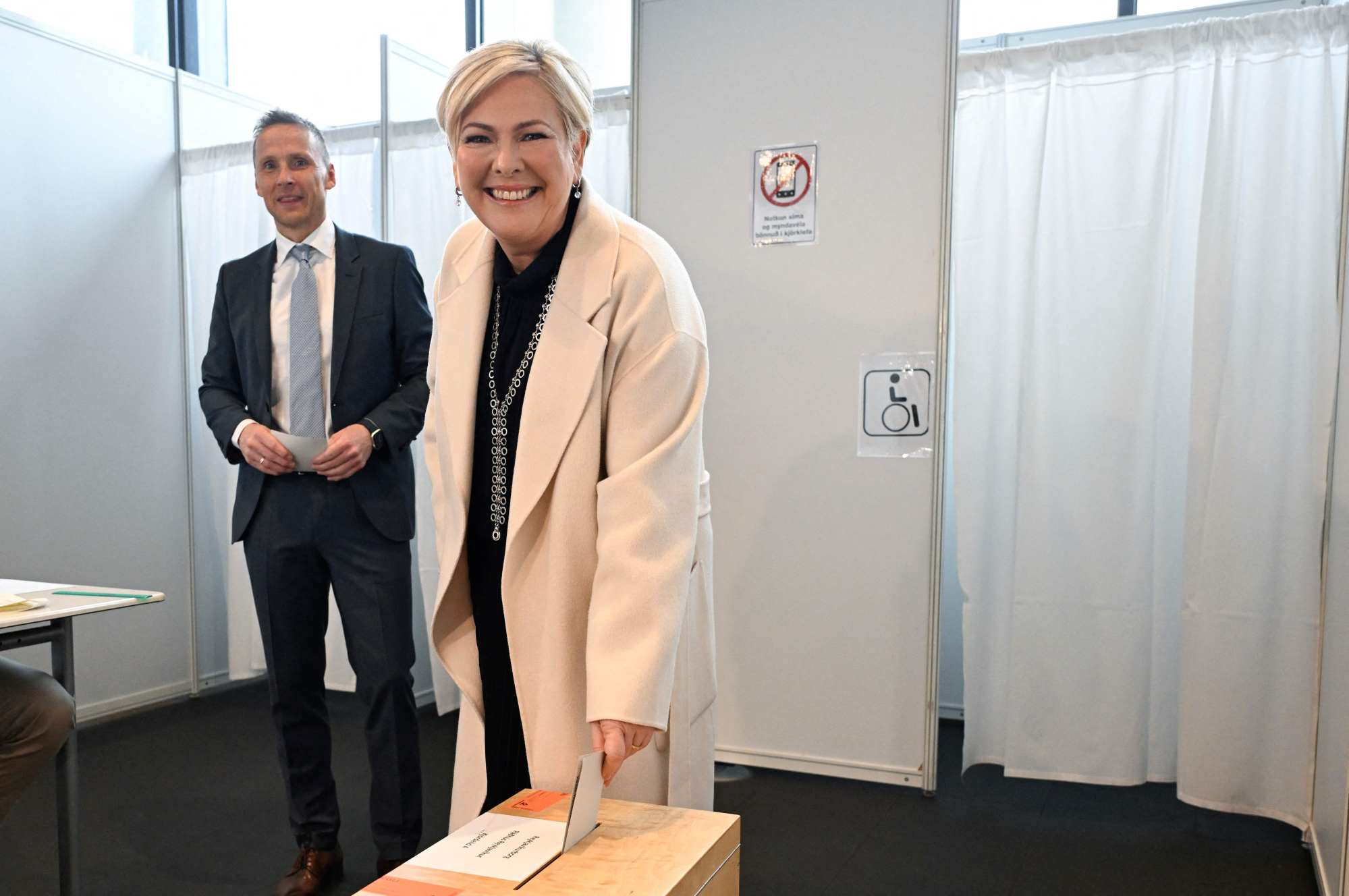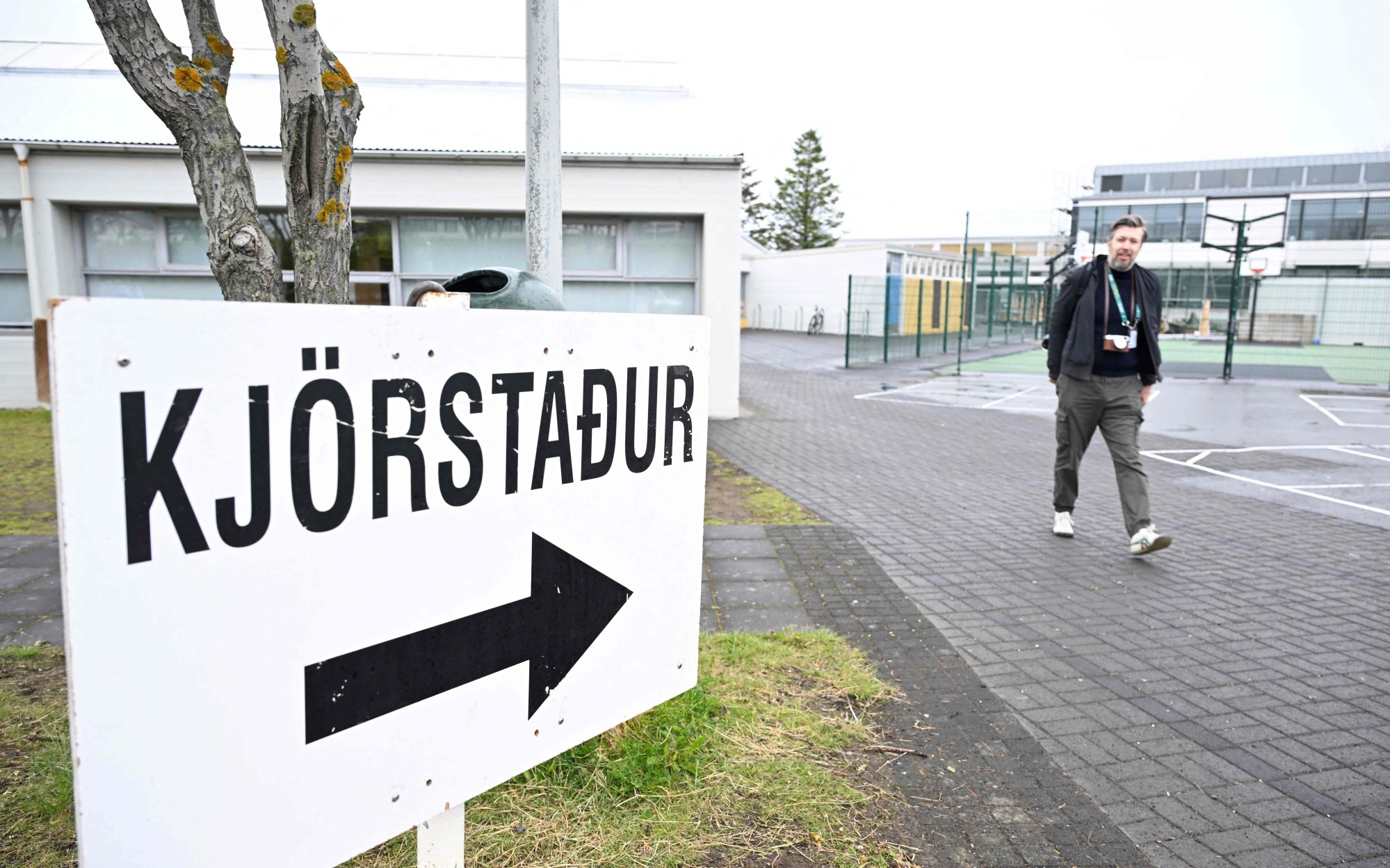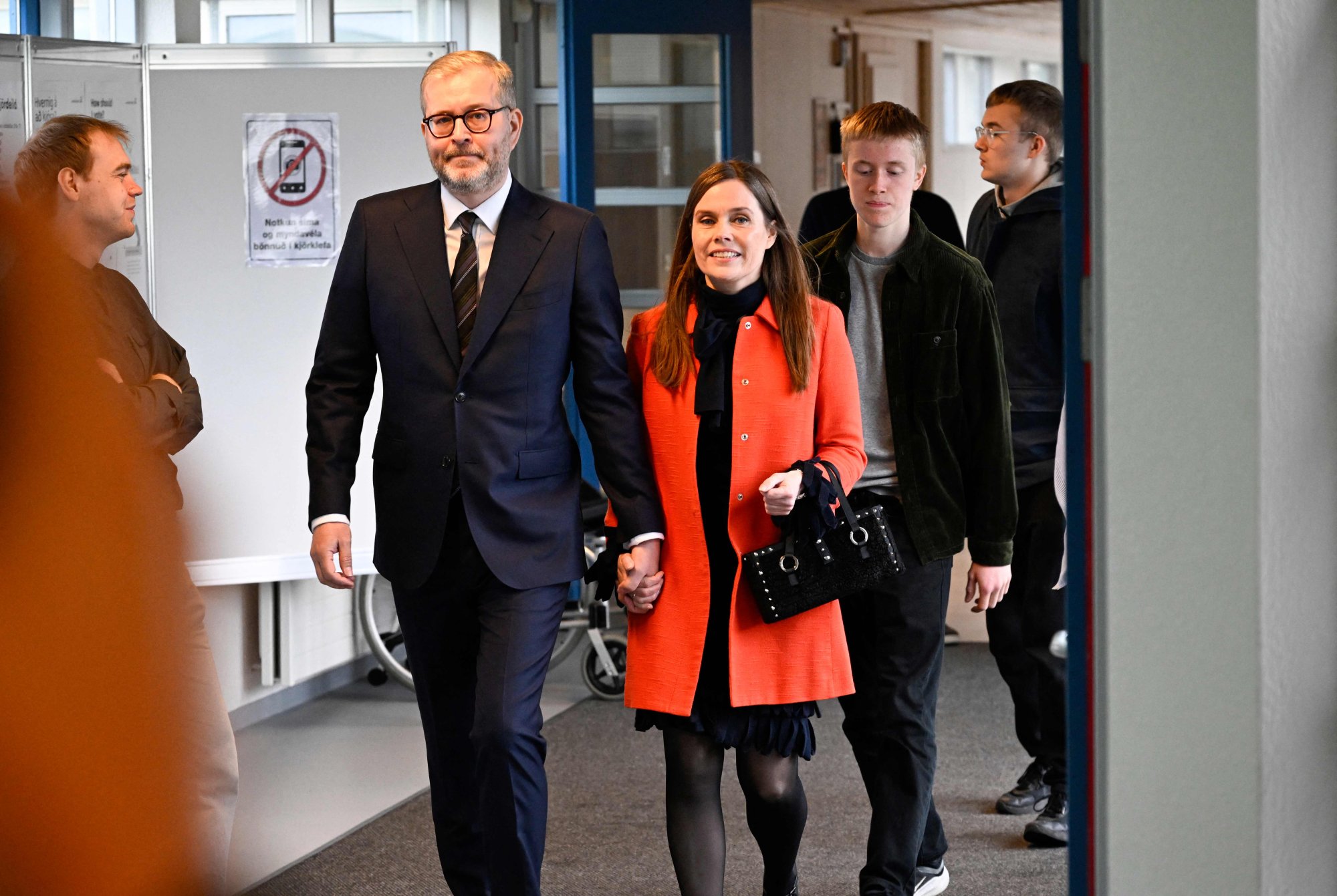Iceland, the world’s most gender equal country, is set to elect a woman as president for the second time in its history.
Polling stations across the north Atlantic island are opening on Saturday to choose a successor to Gudni Th Johannesson, who is stepping down after two terms. The candidate who wins the most votes will become head of state in the single round election, and serve for four years.
Two women are neck-and-neck in polls. Katrin Jakobsdottir, who stepped down as prime minister to run for president, faces competition from Halla Tomasdottir, an equality advocate with private equity background. Halla Hrund Logadottir, director general of the National Energy Authority, has in recent polls fallen to third place.

The ballots opened at 9am local time and close at 10pm, with first results expected soon after polling stations close and a conclusive outcome in the hours that follow.
Iceland has the smallest measured gender gap in the world and a strong history of female empowerment, with women famously going on strike every few years to protest against the remaining inequalities in their society. The country made history in 1980, when Vigdis Finnbogadottir became the first woman to be elected president in the world. She went on to serve four terms.
After her, for the past 28 years, Iceland has been led by male heads of state. While the president’s constitutional powers are limited, the role is significant as a unifying force in the nation of about 376,000 people – roughly half the population of Alaska. The president is also seen as a guardian of the language that is at risk of deteriorating with the prevalence of English, and holds veto power over legislation, with the ability to force a referendum over controversial matters.
The president can also play a role during a government formation process and can refuse to dissolve the parliament. The veto power has only been used by one president, Olafur Ragnar Grimsson, who during his 20 years in power “made this presidential power a living reality”, political scientist Olafur Th Hardarson said in an interview.

The current president, Johannesson, took the nation by surprise when he on January 1 announced that he would not seek re-election after his second term. He had been well liked and served without controversy.
The 12 hopefuls vying for presidency represent no political parties nor do the parties declare support for anyone. That means the “people’s estimate of the personal characteristics of the candidates is the most important factor for voting behaviour”, Hardarson said.
The front runners
Prime minister since 2017, Jakobsdottir, 48, has had a varied political career, with cabinet posts including the education and Nordic cooperation portfolios. As premier, Jakobsdottir was praised for her response to the Covid-19 pandemic, avoiding the strict restrictions seen in many other European countries – thanks to close collaboration with scientists and health authorities. Once the pandemic abated, her second term was characterised by tension between the coalition parties spanning the political spectrum.
During her campaign, Jakobsdottir has emphasised the president’s role as a unifying force and says she would focus on preventing polarisation.

She has also spoken about safeguarding Iceland’s “core values” – democracy, human rights and equality. The mother of three has a degree in Icelandic literature and published a crime novel in 2022.
Tomasdottir, 55, the chief executive officer of not-for-profit organisation B Team, has advocated for transparency in business, with particular focus on business ethics, sustainability, and equality.
A founder of a private equity firm and a company pursuing responsible investments, Tomasdottir was the first woman chosen to lead Iceland’s Chamber of Commerce.
The mother of two is known for furthering education and initiatives aimed at empowering women. As president, she plans to bring Icelandic people together on discussions on the country’s core values and speak for them on the international arena.
Logadottir, 43, is director general of the National Energy Authority, and has specialised in environmental and energy issues. She teaches at Reykjavik University and serves as an adjunct professor at Harvard University. Her courses include energy policy strategy and climate issues. In 2017 she co-founded the Arctic Initiative at Harvard and also worked on establishing the international gender equality project, Project Girls for Girls.
The mother of two young daughters sees herself as promoter of Icelandic innovation and has spoken of the power of international cooperation.

